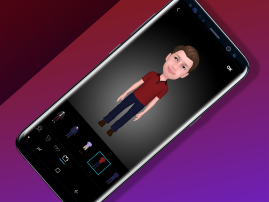Windows 10’s latest Skype update makes you fluent in six languages
Skype Translator now works on real-time conversations in Spanish, Mandarin and others

In Douglas Adams’ peerless Hitchhikers Guide To The Galaxy, members of different alien species are able to converse with each other by placing a translating ‘Babel fish’ in their ears. The latest Skype update brings that fanciful idea closer to reality. But without the fish.
From today, all Windows 10 PCs gain the power to translate between seven spoken languages, in real time. So, you can speak to a friend in English and they’ll hear Spanish, French, German, Italian or Mandarin.
We visited Skype to try its new Babel-tech, and it’s pretty amazing.

The process is very straightforward – just log into Skype, click the little globe and you can pick a language and make a call. On our call to a guy in Madrid, conversation was slightly stilted and the translation wasn’t perfect, but Microsoft is keen to point out that this is still a trial that will improve enormously with practice – the more people use it, the more they’ll train its natural language skills.
It’s pretty impressive right now, though, allowing a coherent dialogue between people who would previously have found it very difficult to communicate at all.
The improvements in natural language processing emerge from Skype Translator being fed thousands of hours of human conversation, training it to recognise sounds as syllables, but Microsoft says this doesn’t come at the expense of your privacy. That’s because Translator isn’t recording your every word, but instead uses randomly selected, anonymised snippets of sound taken from a small percentage of conversations.
Giving anyone the ability to speak serviceable Spanish or middling Mandarin is obviously going to be great for business, but when you start to think about it there are plenty of other interesting future uses to imagine. Social networks become multilingual, for example. Online gaming becomes less country-specific. Interviewees on TV news speak one language while the presenter asks questions in another.
And within a few years, when you phone a call centre, you’ll always hear the same voice: a smoothly robotic, accent-free English translation of a service desk operator who could be speaking Swahili or Urdu or Russian, because a command of English will no longer be a requirement to man a helpline.



